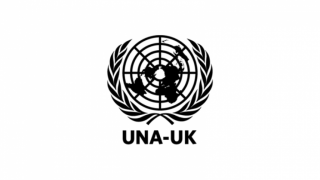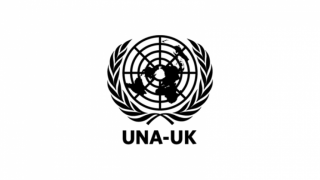On Monday 17 November, the Government announced sweeping proposals to redesign the asylum system—changes that amount to one of the most extreme rollbacks of refugee rights in decades. These measures appear to abandon the UK’s longstanding commitment under refugee law to safeguard people fleeing conflict, persecution and severe human rights violations and strip them of the possibility of building a new and stable life.
The proposed changes include:
- Reducing refugee status to temporary protection of just 30 months, and extending the wait for permanent settlement from five to twenty years making family reunion more difficult;
- Revoking the statutory duty to provide support for people seeking asylum, including accommodation;
- Changing the way the European Court of Human Rights (ECHR) is interpreted, to enable the forcible deportation of more people;
- Creating routes for refugees to gain permanent settlement in the UK based on talent and skilled employment;
- Removing ‘high value’ items such as jewellery from people seeking safety to contribute to costs of accommodation.
While The UN Refugee Agency (UNHCR) welcomed the UK Government’s dual focus on maintaining safety for those in need of protection while strengthening border management UNHCR underlined that meaningful protection must last well beyond the initial recognition of refugee status. UNHCR’s UK Representative, Vicky Tennant, explained that real safety requires “a secure status that enables people to rebuild their lives, reunite with loved ones and work towards long-term solutions.”
The agency has also cautioned that temporary protection, restrictions on family reunion and a lack of safe routes trap people in prolonged anxiety, hinder integration and create unnecessary administrative burdens. At a moment of unparalleled global displacement, UNHCR stresses that compassion, effective systems, shared responsibility and international cooperation are essential—and has affirmed its willingness to support the UK in upholding these obligations.
Despite this, the Government’s blueprint heads in the opposite direction. It proposes extending the period before a refugee can obtain permanent settlement from five years to twenty, with mandatory reviews every thirty months and the explicit aim of removing them if their home country is later judged “safe.” Instead of reducing the backlog, repeated reassessments every two and a half years will add bureaucracy, delay and cost. A redesigned appeal process would compress multiple stages into one, making it easier and faster to remove people whose claims the Government deems unlikely to succeed. Families, including children, could face forced removal.
The Government also intends to abolish the legal obligation to provide financial support and accommodation to asylum seekers who would otherwise be destitute. This will leave thousands without guaranteed help, dependent on discretionary assistance the Home Office has historically been reluctant to grant. In tandem, ministers plan to impose caps on “safe and legal” routes, shift most resettlement to community sponsorship, restrict places for displaced students, and introduce a capped pathway for skilled refugees—all designed with the expectation that those admitted will eventually return to their countries of origin. Even those who come through these limited channels will be placed on a decade-long path to settlement, prolonging instability.
UNA-UK CEO Jane Kinninmont said:
These plans represent an erosion of refugee rights. UNA-UK is appalled by the notion that it is acceptable to require people who have already survived conflict, torture or persecution to wait for many years before feeling secure in the UK, while living under the ongoing threat of removal. Such an approach will obstruct integration, limit access to work and housing, and take a devastating toll on people’s mental and physical wellbeing.
Organisations working with refugees consistently witness the profound loss experienced during years spent waiting for status—years of life, growth and opportunity that can never be restored. Forcing individuals and families to endure decades of precarity is indefensible. It will push many into homelessness and deep poverty, exposing them to exploitation and harm with refugee women at particular risk. Women for Refugee Women’s research, Safety and Survival, found that 8% of women were forced into sex work to meet their basic needs as a consequence of meagre asylum support. Another Women for Refugee Women report Will I Ever Be Safe? found that 25% of asylum-seeking women were raped or experienced sexual violence while homeless and sleeping outside. This change will undoubtedly force people into further poverty, homelessness, exploitation and danger.
The Government has claimed these measures are necessary because the asylum system has been “abused.” This does not explain why cruel measures are now being proposed for people whose refugee status has been proven and recognised. The real pressure points stem from years of political choices: chronic backlogs, insufficient resourcing, chaotic policy shifts and expensive, performative deterrence schemes such as the £700 million Rwanda plan—which resulted in only four removals. Meanwhile, conflict, repression and the accelerating climate crisis continue to drive global displacement. Punishing those who flee these circumstances does nothing to address their sources.
Policies that intentionally keep people in a state of uncertainty fuel social division rather than healing it. Weakening international protections in the name of deterrence encourages the harmful myth that refugees do not belong, when in fact they are future neighbours, colleagues and friends. These proposals threaten to breach the UK’s international obligations and further damage cooperation with European and global partners, when it is abundantly clear that international cooperation is the only way in which an international issue like refugee flows can be effectively managed. This is not strength; it is a retreat from the principles underpinning refugee protection for more than seventy years.
A fair, humane and workable asylum system is entirely possible. It requires properly resourced decision-making, meaningful support for integration, expanded safe routes and renewed collaboration with European partners. These are the measures that uphold rights, strengthen communities and reflect the values the UK claims to uphold.
UNA-UK urges the Government to withdraw these proposals immediately and recommit to a fair, compassionate and lawful asylum framework. At a time of global crisis and mass displacement, the UK must choose courage over cruelty, solidarity over fear and leadership over hostility.
Read more:
- Read One In, One Out: UK must address human rights concerns over new migration pilot scheme
- Read UNA-UK calls UK to bring immigration guidance line international law
- Read UNA-UK's response to the UK Government suspension of decision making in Syrian asylum cases
- Read UNA-UK's statement in response to the passing of the Rwanda Bill
- Read UNA-UK's statement in response to the Illegal Migration Bill
- See the UN Refugees Agency’s account of Asylum in the UK
- Read UNA-UK's statement on the Nationality and Borders Bill






